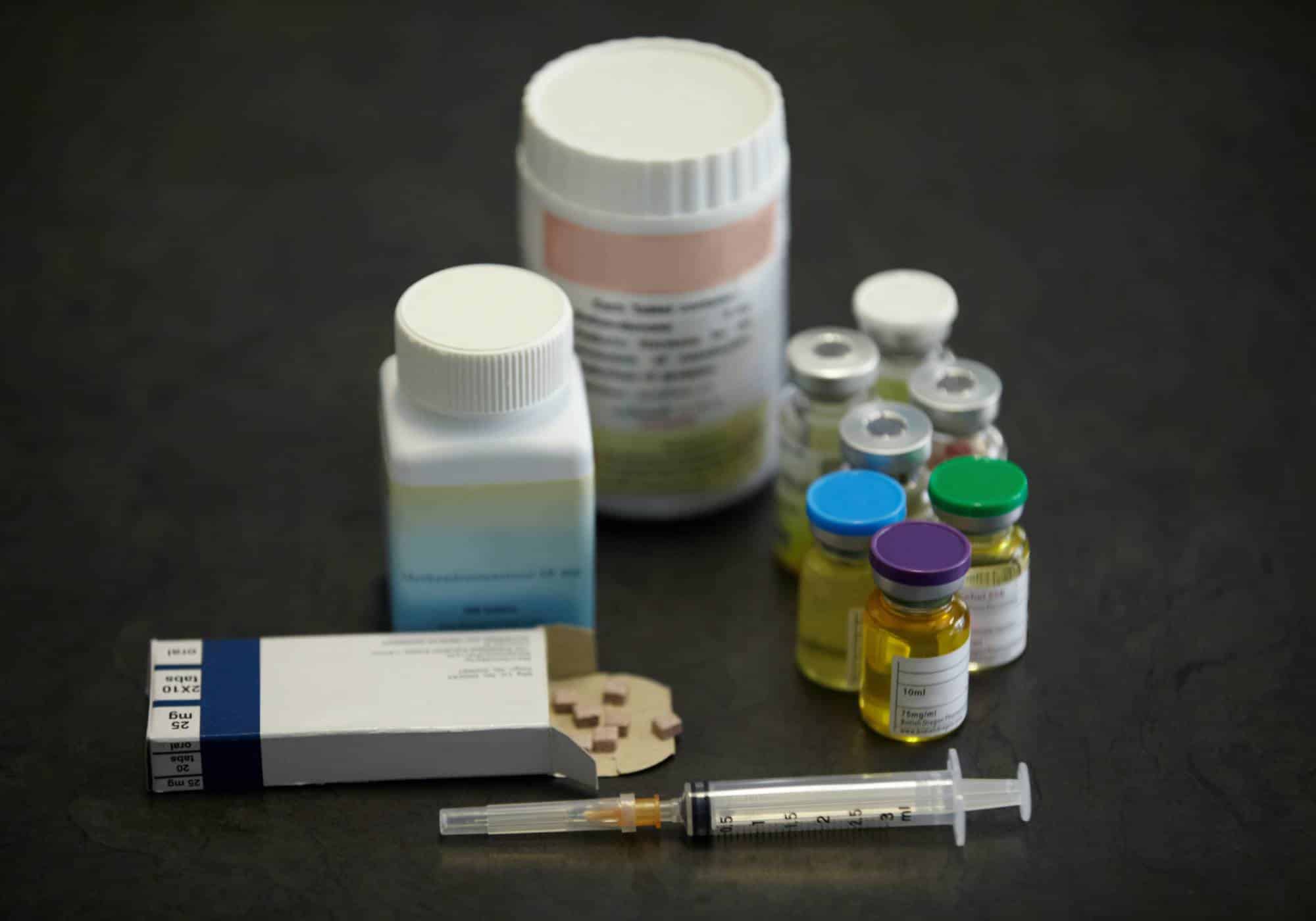Recognizing the signs of meth use in someone you care about can be both alarming and vital for their well-being. Methamphetamine, a highly addictive and hazardous substance, can leave a profound impact on an individual’s health and behavior. If you are close to someone and suspect they might be engaging in meth use, being informed about the various behavioral, physical, and psychological indicators is crucial. This knowledge not only prepares you to approach the subject with empathy and understanding but also empowers you to encourage them towards seeking help and potentially life-saving treatment.
Recognizing the Signs of Meth Use
Methamphetamine, a potent and illegal stimulant, manifests through various physical and mental symptoms. Identifying these signs early can be crucial for providing timely support and intervention.
Physical Signs of Meth Use
- Dilated Pupils: Meth often causes significant dilation of the pupils.
- Skin Sores: Users may have sores from compulsive scratching, leading to potential infections and scarring.
- Facial Twitching: Involuntary movements or twitching may occur.
- Excessive Sweating: Meth use can trigger intense sweating.
- Elevated Body Temperature: Users may exhibit unusually high temperatures, risking hyperthermia.
Mental Signs of Meth Use
- Agitation: Meth can cause severe mood swings and irritability.
- Confusion: Users might show signs of confusion and an inability to engage in coherent dialogue.
- Paranoia: Intense paranoia is common, with users feeling unjustly persecuted or spied upon.
- Hallucinations: Auditory and visual hallucinations are possible.
- Repetitive Behaviors: Obsessive, compulsive actions, like skin picking, are indicators of meth use.
- Euphoria: Users often experience a sudden rush of happiness, followed by deep depression once the effect fades.
If you notice these signs in someone you care about, approach the topic with empathy and suggest seeking professional guidance for overcoming addiction.
What is Meth?
Methamphetamine, commonly known as meth, is a potent stimulant often found under street names such as crystal meth, chalk, ice, or speed. Classified as a Schedule II controlled substance, it sees significant illegal distribution across the United States. Despite its notorious reputation, methamphetamine can be legally prescribed by a healthcare provider to manage conditions like attention-deficit hyperactivity disorder (ADHD).
Statistics from 2019 indicate that around 2 million individuals reported using meth annually. This demographic includes approximately 1.7 million adults over the age of 26, 275,000 young adults between 18 to 25 years, and 41,000 adolescents ranging from 12 to 17 years old.
Additional Signs Someone is Using Meth

Meth Mouth
Meth mouth is a significant indicator of methamphetamine addiction, characterized by severe dental decay and gum disease, often leading to tooth loss. This condition results from the drug’s acidic nature and its physiological effects, including dry mouth and prolonged neglect of oral hygiene. The American Dental Association notes the severe tooth decay and gum disease in meth users, with teeth often appearing blackened, stained, and in a state of decay.
Key symptoms of meth mouth include:
- Dry mouth (Xerostomia)
- Cracked, loose, or missing teeth
- Lockjaw
- Gum diseases like gingivitis and periodontitis
- Carious lesions (micro-cavities)
- Bruxism (teeth grinding or clenching)
- Blackened, rotting teeth
- Bad breath
Tweaking
Tweaking is a phase that marks the end of a meth binge, characterized by the inability to achieve the desired high, leading to intense cravings and psychological distress. During this phase, individuals may experience:
- Sensations of insects crawling under the skin
- Prolonged insomnia
- Disconnection from reality, entering a psychotic state
- Increased paranoia, frustration, and instability
- Hallucinations and self-harm
Understanding a Tweaker
The term “tweaker” refers to individuals deeply affected by meth use, often associated with the tweaking phase. It describes both the specific behaviors of tweaking and the broader context of an individual’s methamphetamine use.
The Crash
Following a period of continuous meth use, individuals experience a crash phase, characterized by extreme exhaustion and prolonged periods of sleep. This crash can last from one to three days and serves as a visible indicator of methamphetamine abuse to those around the user.
How to Support Someone Showing Signs of Meth Use
Discovering signs of meth use in someone close to you can be distressing, but taking proactive steps can make a difference. Here’s how you can support them effectively:
- Educate Yourself: Gain a solid understanding of meth addiction, including its signs and impact. This knowledge will equip you to handle discussions more effectively.
- Timing and Privacy Matter: Choose a quiet, private moment for the conversation, ensuring you’re both free from distractions. A calm, receptive state is ideal for such discussions.
- Show Compassion: Approach the conversation with empathy, focusing on your concern for their health and happiness. Avoid judgmental language, as addiction is often intertwined with deeper emotional issues.
- Listen Openly: Encourage them to share their feelings and experiences. Being a good listener can provide them with a safe space to express themselves and might encourage them to open up about their struggle.
- Offer Your Support: Assure them of your support and emphasize that they’re not alone in this journey. Motivate them to seek professional help and remind them that recovery is possible.
- Avoid Enabling: While you want to help, ensure you’re not inadvertently facilitating their addiction. This includes not providing funds or other means to continue their drug use.
- Professional Assistance: If they’re resistant to seeking help or if their situation is critical, consider consulting with an addiction specialist or interventionist. These professionals can offer valuable guidance for approaching the situation and recommend suitable treatment options.
Confronting a loved one about their meth use requires sensitivity and care. Always prioritize their well-being, offering support and understanding throughout their recovery journey.
Importance of Identifying the Warning Signs of Meth Abuse to Prevent Damage
Methamphetamine use can lead to profound physical and mental health issues, such as:
- Altered brain structure and functionality
- Impairments in cognitive and motor abilities
- Significant dental issues
- Mental health disorders, including psychosis
- Increased aggression or violence
- Cardiovascular or neurological damage due to meth-induced bodily stress
While some effects on the brain may improve with cessation and treatment, early intervention is crucial in minimizing lasting damage and enhancing the likelihood of recovery. Recognizing the signs of meth use early can be pivotal in seeking timely help and support.
Meth Addiction Treatment at Hope Harbor Wellness
Located in the serene suburbs of Atlanta, Hope Harbor Wellness is your ally in the fight against meth addiction in Atlanta. Our meth drug rehab centers, dedicated to holistic recovery, are ideally situated to offer you the support you need.
Our compassionate outpatient program collaborates with top-tier medical meth detox facilities, ensuring a safe and effective detox process. Once free from addictive substances, you can seamlessly transition into one of our specialized outpatient treatment programs at Hope Harbor Wellness, designed to address substance use disorders:
- Outpatient Rehab: A flexible program tailored to fit into your daily life.
- PHP (Partial Hospitalization Program): Offers a structured yet non-residential approach to treatment.
- IOP (Intensive Outpatient Program): Provides more intensive care while allowing you to maintain daily responsibilities.
- Dual Diagnosis Treatment Program: Caters to those with co-occurring mental health disorders.
Our meth treatment programs incorporate a variety of interventions:
- MAT (Medication-Assisted Treatment): Utilizes medications to ease withdrawal symptoms and cravings.
- Psychotherapy: Addresses underlying psychological aspects of addiction.
- Group Therapy: Offers peer support and shared learning experiences.
- Individual Counseling: Provides personalized guidance and support.
- Family Therapy: Helps heal and strengthen family relationships.
- Holistic Therapies: Focuses on overall well-being, including physical, emotional, and spiritual health.
- Aftercare: Ensures ongoing support post-treatment.
Embark on your journey from addiction to recovery with Hope Harbor Wellness. Trust in our dedicated team to guide you every step of the way. For more information or to start your journey, call our admissions team at 678-605-9725.












